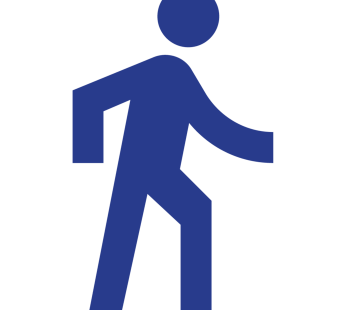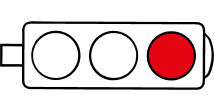Make Saving A Habit
It is possible for you to save money even if you feel as though you live paycheck to paycheck and your wages are totally committed to paying your bills. Saving money is a matter of habit not finances.
If you allow yourself to believe that saving money is a habit and that habits are derived from your own mindset, you will overcome the main obstacle you face in beginning to accumulate a savings account. If you continue to believe that your ability to save is only a product of the amount of your income, you are thinking like a victim and not like someone who makes your own choices and takes charge of your own financial destiny.
Remember that stress, particularly stress associated with your finances, is only created from what you do not understand or what you cannot control. You can absolutely take steps to better understand and control your finances and become a saver.
There are multiple ways that you can begin effective saving habits regardless of your level of income and without necessarily needing to make more money. They include, but are not limited to direct deposit, proper withholding alignment, contributions to employer sponsored saving plans, and Roth IRA’s.
The most basic form of saving is the establishment of a regular savings account at your local credit union or bank. Credit Unions will typically provide you with an easier route to a savings account because they very rarely charge fees or impose limitations, whereas most banks will require minimum balances and/or restrict usage and charge fees if you do not meet those requirements.
One way to start a savings account is to set up a direct deposit into the account straight from your paycheck. This simple step can many times mean the difference between being a saver and being a spender. While some of us will tend to spend money we do not have, most of us will find a way to live within our means. If your money is taken out of your check before you receive it, it is much easier not to spend it. While you will still have access to it, the mere fact that the money is not sitting in your checking account ensures that you will need to take additional action to use those funds. If you are not currently a saver or if you are convinced that you need every cent of your wages to pay bills and cover your spending needs, start small. Take $10 out of your paycheck through a direct deposit to your new savings account and forget about it. You might be surprised how easy it is and because you are setting your own savings goal, there is no need to feel any pressure to increase the amount or reach a certain savings level. At this stage, it is important just to concentrate on the act of saving, no matter the amount you save.
If you find that you are struggling even to identify $10 of savings in each paycheck or if you are looking for ways to increase your savings, take a close look at your income tax withholdings. If you are committed to saving, your money is always of more use to you in your own hands than that of the government. Many people routinely overpay their taxes during the course of the year and look forward to a refund the following year. While you could make an argument for the validity of this option as a forced savings plan, keep in mind that the government does not pay you interest while holding your money. Properly aligning your withholdings with your real tax liability is yet another step toward taking charge of your finances.
Another key to making saving a habit is to contribute to your employer sponsored savings plans, whether they are of the 401(k), 403(b), or 457 varieties. Doing so creates another avenue of saving that takes place before you receive your check. This type of savings contribution uses pre-tax income so that when you begin contributing you receive the additional benefit of reducing your income tax liability. In fact, of all of the ways in which you can save, this is the most advantageous regardless of the amount of your income or the size of your contribution. Not only will you benefit from saving on a pre-tax basis, but many of these plans include provisions for employer contributions as well. As you save and your employer contributes to your account, your savings will grow tax-free. Because of this, this type of saving will also provide you with the most immediate and meaningful results. It is an excellent way to build wealth in preparation for your retirement and the younger you are when you start to contribute, the more money you will have when you typically will need it the most.
An additional alternative is to open up a Roth IRA savings account. IRA is an acronym for Individual Retirement Account, of which there are many different types. The Roth IRA, however, is somewhat unique in that you use after-tax dollars to establish it and, therefore, you have greater access to the funds. In other words, because you have already paid taxes on the dollars you invest in a Roth IRA, there are fewer restrictions in place should you decide that you need the funds for another purpose. Roth IRA’s will typically produce a higher rate of return than a regular savings account and you can contribute to them in a variety of ways, including via direct deposit.
You can begin using any of the aforementioned savings methods without increasing your income. By establishing your saving habit before your wages increase, you will be better prepared to save and save at a higher level when you do earn your next raise or promotion. Should your wages increase, take the opportunity to save a few more dollars. At this point, you will have already proven to yourself that it can be done.
It is always important to seek professional advice when you are making decisions about your finances. The savings options and methods mentioned here, however, are straight- forward and can almost always be accommodated by your primary financial institution.
The act of saving can be as simple or as complicated as you would like to make it and you can more easily talk yourself out of the need to save than you can convince yourself that it is important to do so. Just remember that you will encounter less stress and generally find yourself in a better position overall when you are living your life with a plan. If you choose to live your life with a plan, remember also that you will often discover brilliance in simplicity.
Scott Arney
Chief Executive Officer
Chicago Patrolmen’s Federal Credit Union







